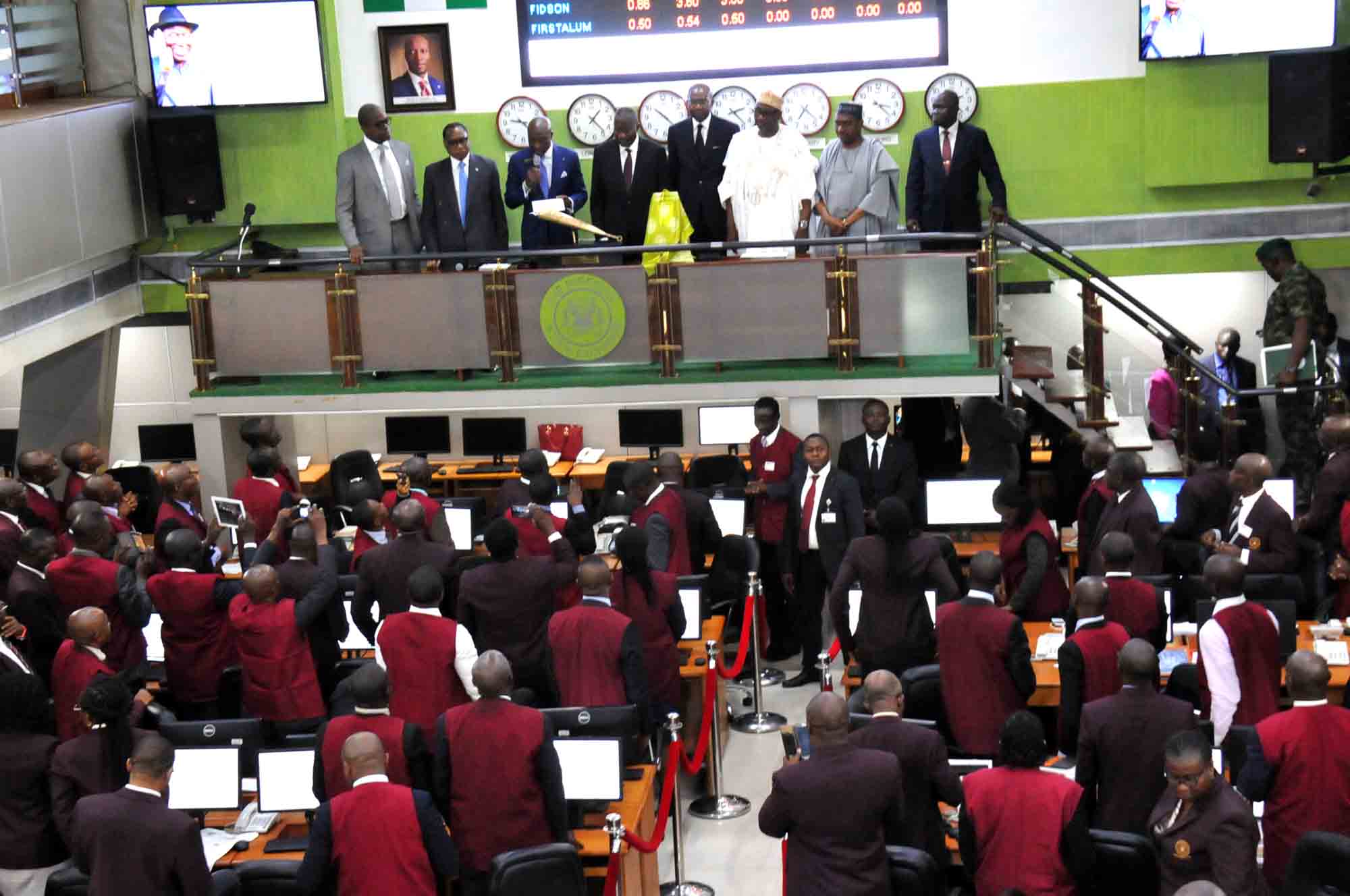- Stocks Appreciate Marginally, AXA Mansard, UPDC Top Losers
The Nigerian equity market traded relatively flat on Wednesday (the last trading day of the month), with AXA Mansard Insurance Plc, UACN Property Development Company Plc and Nascon Allied Industries Plc emerging as the top three losers.
The Nigerian Stock Exchange market capitalisation rose to N8.689tn from N8.686tn, while the All-Share Index closed at 25,241.63 basis points from 25,233.42 basis points.
The NSE ASI rose by three basis points as bargain hunters snap up beaten-down stocks. Nonetheless, the ASI ended the lackluster month in the red, posting a negative month-to-date return of 7.3 per cent – the worst performance since January.
A total of 414.155 million shares valued at N3.418bn were traded in 2,567 deals.
The oil and gas sector led advances after Mobil Oil Nigeria Plc closed limit up for the second consecutive session, riding on positive sentiment on deal valuation of ExxonMobil’s proposed sale of 60 per cent stake to Nipco, as well as gains in Oando Plc and Total Nigeria Plc by 4.99 per cent and 1.59 per cent, respectively.
The financial services and consumer goods sectors also closed in positive territory following gains across Guaranty Trust Bank Plc, Stanbic IBTC Holdings Plc, Zenith Bank Plc, Cadbury Nigeria Plc and Nigerian Breweries Plc by 3.9 per cent, 3.88 per cent, 2.07 per cent10.15 per cent and 1.4 per cent, accordingly.
However, the industrial goods sector underperformed yet again, dragged down by a 2.53 per cent loss in Dangote Cement Plc.
Market breadth turned even with 20 advances and 20 declines.
On what would shape the next trading session, analysts at Vetiva Capital Management Limited, in the firm’s daily market report, said, “We expect the mixed trading pattern to persist in coming sessions as investors continue to pick up battered bellwethers.”
On the global front, Asian markets (which closed earlier) were mixed amidst an overnight decline in oil prices ahead of Organisation of Petroleum Exporting Countries’ meeting. However, European and the United States markets were higher following a jump in oil prices as OPEC agreed its first cut (1.2 million barrels per day) on oil output since 2008.
Meanwhile, the interbank call rate moderated 58 basis point to 10 per cent amid a relatively unchanged liquidity system.
At the foreign exchange interbank market, the naira appreciated N0.25 against the dollar at the Central Bank of Nigeria spot market to close at N305 at the CBN forex spot market while the one year forward rate remained unchanged at N349.
With no Open Market Operations announcement in Wednesday’s session, buying momentum resurfaced in the Treasury bills market with yields declining 37 basis points on the average particularly across the short to mid-dated maturities.
Specifically, yields on the 15 day-to-maturity, 36DTM and 113DTM bills declined to 10.01 per cent, 10.05 per cent, and 15.83 per cent, respectively.
However, trading remained bearish in the bond market as yields on benchmark bonds rose by four basis points on the average.
Sell offs were most apparent on the long end of the space with yields on the 12.1493 per cent FGN July 2034 and 12.40 per cent FGN March 2036 bonds rising seven basis points and three basis points to close at 15.94 per cent and 16.06 per cent,respectively.
Notwithstanding the improvement in buying momentum, analysts expect Thursday’s market activity to be guided by the yet-to-be-released results of the Primary Market Auction held yesterday (Wednesday). In addition, they expect bearish sentiment to persist in the bond market.

 Forex3 weeks ago
Forex3 weeks ago


 Naira2 weeks ago
Naira2 weeks ago
 Billionaire Watch2 weeks ago
Billionaire Watch2 weeks ago




 Naira3 weeks ago
Naira3 weeks ago




 Naira2 weeks ago
Naira2 weeks ago




 Naira1 week ago
Naira1 week ago




 Naira4 weeks ago
Naira4 weeks ago




 Naira4 weeks ago
Naira4 weeks ago






















